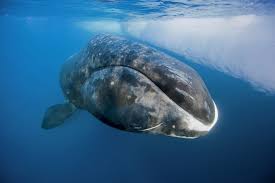New research published in Science Advances has upended long-held beliefs about the lifespans of whales, revealing that these magnificent marine mammals may live far longer than previously estimated.
Axar.az reports that Southern right whales, once thought to have lifespans of 70–80 years, can surpass 100 years with some reaching 150. Astonishingly, 10% of these whales live beyond 130 years, making their longevity almost double what scientists previously assumed.
However, a grim contrast emerges for their close relatives, the North Atlantic right whales. These whales, also believed to live around 70 years, now have an average lifespan of just 22 years due to human activities like entanglements in fishing gear and ship strikes. Few live past 50, highlighting the dire impact of human intervention.
Decoding Whale Longevity
The study relied on decades of photo identification to track individual whales, developing "survivorship curves" to estimate how long whales live after disappearing from photographic records. These methods echo earlier discoveries about bowhead whales, whose lifespans exceed 200 years. Evidence such as 19th-century harpoon fragments embedded in bowhead blubber supported these findings, challenging previous assumptions that whales lived only 80 years.
Why Longevity Matters
Whales' extended lifespans underscore their slow reproductive cycles. Long-lived species like whales reproduce infrequently, often going years between births. This means population recovery, especially for species impacted by industrial whaling or current threats, is a slow and fragile process.
"Conservation strategies need to consider how long these animals can live," researchers argue, emphasizing that focusing solely on increasing population numbers without addressing lifespan risks long-term failure.
Questions That Remain
Could other whales, such as blue, fin, or humpbacks, also share these extended lifespans? Industrial whaling, which decimated populations, may have robbed us of the chance to study truly old individuals. Though whale populations are rebounding, it may take another century to understand their natural longevity fully.
A Call for Protection
Understanding how long whales live offers more than scientific curiosity; it’s a blueprint for better protection. Long-lived species play unique roles in their ecosystems, and their loss disrupts population numbers and the cultural and ecological wisdom passed through generations.
The challenge now lies in preventing premature deaths caused by human activities. As researchers work to predict when whale populations might return to pre-whaling levels, they warn: For some species, time is running out faster than it should.
For science and nature enthusiasts, these findings serve as a poignant reminder of humanity’s impact on marine giants—and a call to ensure their stories, like their lives, are long and enduring.






























.jpg)













